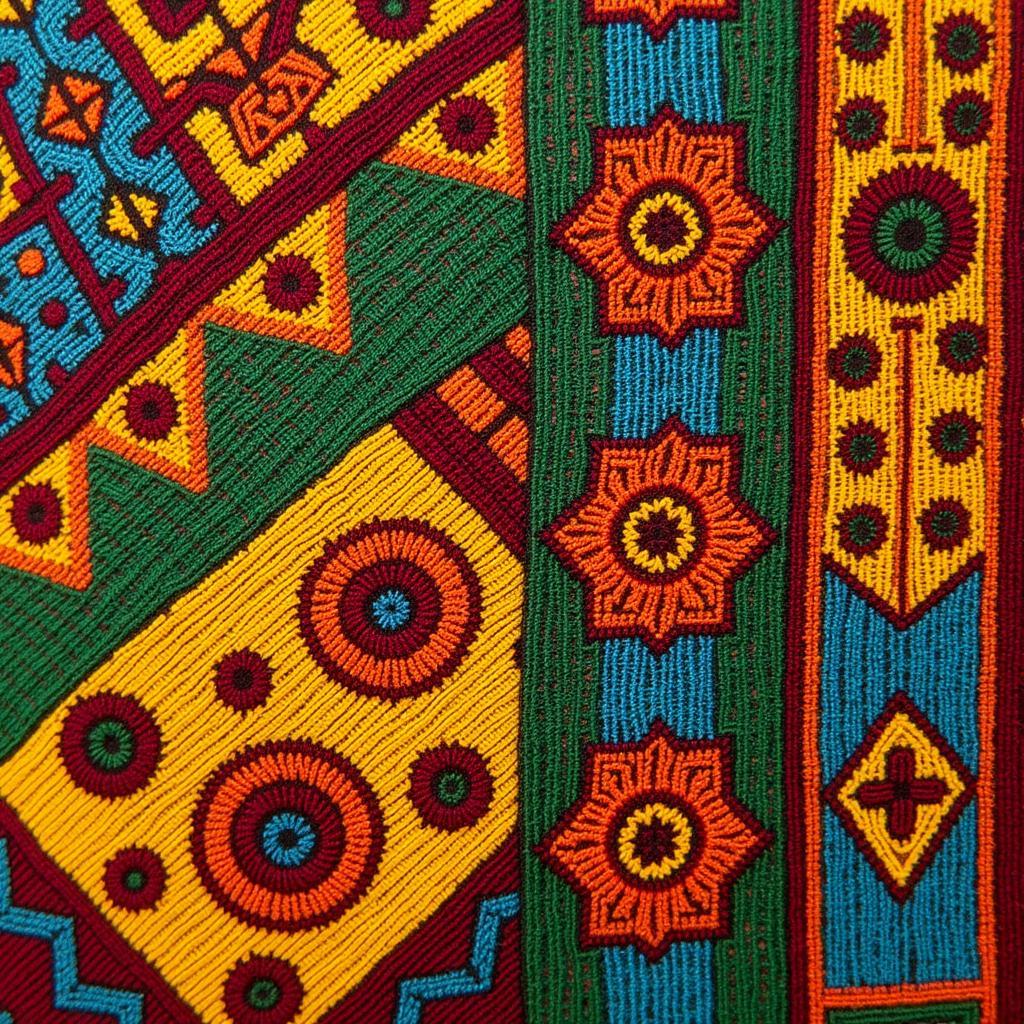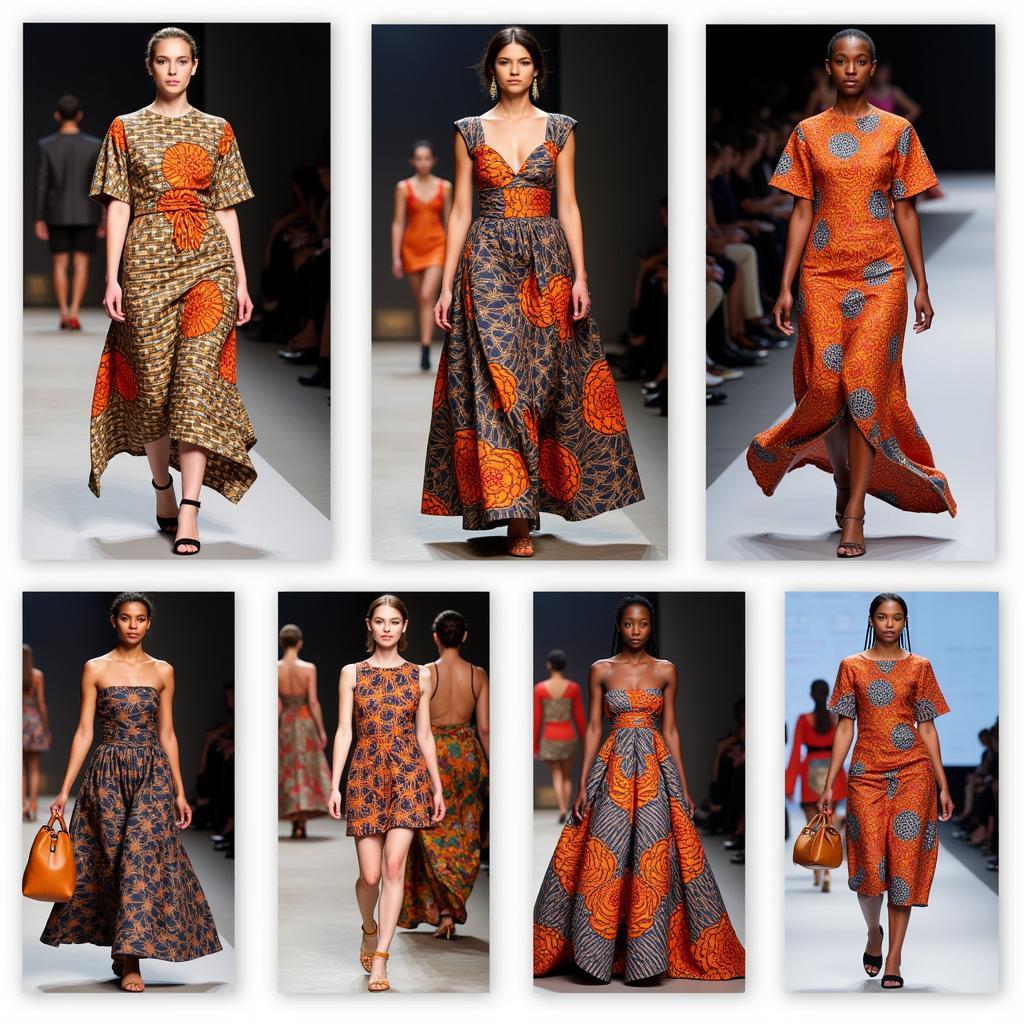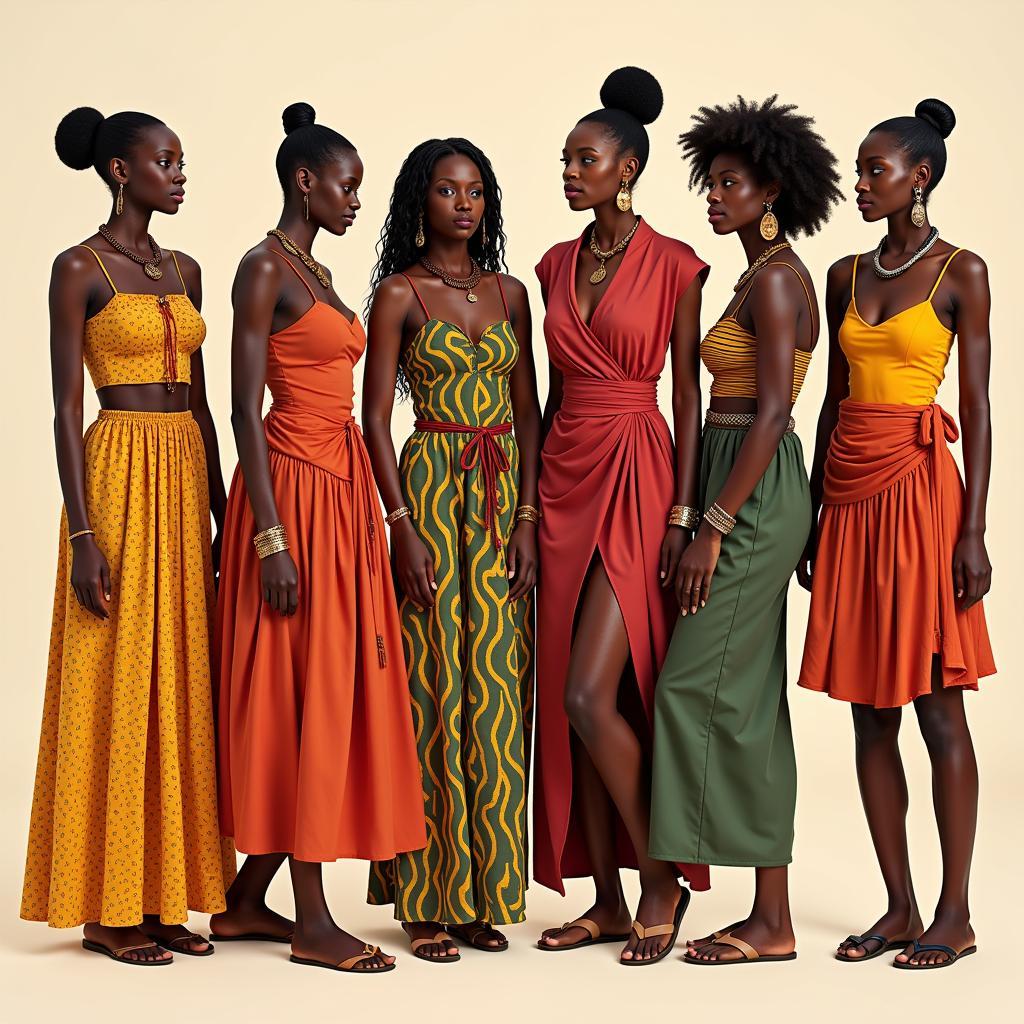A Vibrant Tradition: Exploring African Embroidery Kente
The art of African Embroidery Kente cloth weaving is more than just a craft; it’s a visual language, a historical tapestry, and a celebration of cultural heritage. For centuries, the Ashanti people of Ghana have been masters of this intricate craft, creating vibrant textiles that tell stories, embody beliefs, and captivate the eye.
Unraveling the Threads of History: The Origins of Kente
Legend has it that the origins of Kente can be traced back to a spider and two friends, Ota Karaban and Kuro Antwi, who were inspired by the arachnid’s intricate web. While the story is shrouded in myth, what’s undeniable is that Kente weaving evolved over centuries, becoming a symbol of royalty and prestige among the Ashanti people.
More than Meets the Eye: The Symbolism Woven into Kente
 Kente Cloth: A Tapestry of Symbols
Kente Cloth: A Tapestry of Symbols
Every color and pattern in Kente cloth carries profound meaning. For instance, gold represents royalty and wealth, while green symbolizes growth and harmony. Similarly, geometric patterns often represent abstract concepts like unity or strength. This intricate language of symbolism transforms Kente cloth into a visual narrative, communicating messages of history, philosophy, and social values.
From Royalty to Everyday Life: The Evolution of Kente’s Significance
While Kente was initially reserved for royalty and special occasions, its use has evolved over time. Today, Kente is embraced by people of all backgrounds, finding its way into contemporary fashion, home decor, and art. This transition reflects the enduring appeal of Kente as a symbol of African heritage and creativity.
The Making of a Masterpiece: The Art of Kente Weaving
The process of creating Kente cloth is as fascinating as the cloth itself. Skilled artisans, often men, use narrow strip looms to interlace threads of silk and cotton, creating geometric patterns with remarkable precision. The strips are then sewn together to create larger pieces of cloth. This labor-intensive process requires patience, skill, and a deep understanding of the craft.
Preserving a Legacy: The Future of Kente
 Modern Takes on Kente Design
Modern Takes on Kente Design
As the world embraces the beauty and cultural significance of African textiles, it’s essential to ensure the future of Kente weaving. Supporting ethical production, promoting fair trade practices, and celebrating the artistry of Kente weavers are vital steps in preserving this vibrant tradition for generations to come.
You can further explore the diversity of African attire and the fascinating world of traditional African clothing through our other articles. If you are specifically interested in exploring clothing options for special occasions, we have dedicated articles covering african dance dress for.girls and african costume for boy.
Conclusion
African embroidery Kente cloth is more than just fabric; it’s a living testament to the rich history, artistry, and cultural heritage of the Ashanti people. Every thread, every color, every pattern whispers a story, inviting us to appreciate the beauty and symbolism woven into this extraordinary textile art form. As we celebrate the vibrancy of Kente, let’s remember the importance of preserving and honoring the legacy of this remarkable craft.
FAQ
1. What is the cultural significance of Kente cloth?
Kente cloth holds immense cultural significance, symbolizing royalty, wealth, history, and spiritual beliefs within the Ashanti culture of Ghana.
2. How is Kente cloth made?
Kente cloth is meticulously woven on narrow strip looms by skilled artisans who interlace silk and cotton threads to create intricate geometric patterns. These strips are then sewn together to create larger pieces of fabric.
3. What do the colors in Kente cloth represent?
Each color in Kente cloth carries symbolic meaning. For example, gold signifies royalty and wealth, green symbolizes growth and harmony, and blue represents peace and love.
4. Is Kente cloth only worn for special occasions?
While Kente cloth was historically reserved for royalty and special events, today it is embraced by people from all walks of life and is incorporated into various aspects of contemporary fashion, home décor, and art.
5. How can I support the ethical production of Kente cloth?
You can support ethical production by purchasing Kente cloth from reputable sources that prioritize fair trade practices and ensure fair wages and working conditions for artisans.
Need Help?
Contact us today!
Phone Number: +255768904061
Email: kaka.mag@gmail.com
Address: Mbarali DC Mawindi, Kangaga, Tanzania
Our customer service team is available 24/7 to assist you.
For further information on African attire details, explore our comprehensive guide available on our website.

